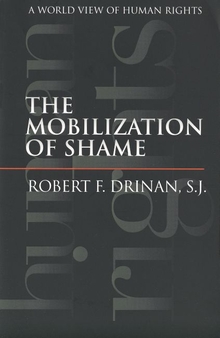Privatopia
WARNING
You are viewing an older version of the Yalebooks website. Please visit out new website with more updated information and a better user experience: https://www.yalebooks.com
Homeowner Associations and the Rise of Residential Private Government
Evan McKenzie
This book is the first comprehensive study of the political and social issues posed by the rise of CIDs. Evan McKenzie shows how the developments diminish residents' sense of responsibility for the city as a whole by making them reluctant to pay taxes for the same public services that their fees provide. McKenzie also shows that the private governments of CIDs depart from accepted notions of liberal democracy, promoting a unique and limited version of citizenship that has serious implications for civil liberties. He argues that the spread of CID housing has important consequences for politics at all levels of government, because CID advocates now constitute a significant force in interest group politics in many states, often organizing to demand tax breaks or credits for CID residents. Tracing the history of CID housing from the nineteenth century to the present, he highlights the important but little-understood role public policy has played in advancing this large-scale "privatization for the few," and he concludes by considering the implications for urban politics.
"McKenzie succeeds in persuading the reader that to understand local and even national politics, it is essential to understand how our notions of participation, community, and citizenship are being changed by the proliferation of CIDs as privatized, quasi-autonomous governments."—Dennis Judd, University of Missouri-St. Louis
"McKenzie's seminal new work . . . [is] destined to become the 'Silent Spring' of the anti-association movement."—Steve Twomey, Washington Post
"Well-written and documented as well as engrossing. . . . Privatopia is a good book for anyone involved with a community association."—Ken Cruikshank, Managers Report
"McKenzie provides a fascinating history of these common-interest developments."—Planning
"The most complete work to date examining CIDs is political scientist Evan McKenzie's new book. . . . McKenzie shows how CIDs: encourage a limited idea of citizenship; impinge on civil liberties; promote a two-class society of haves and have-nots and institutionalize the separation of city and suburb."—Karen Danielsen and Robert Lang, Community & Urban Sociology
"Dr. Evan McKenzie sounds an alarm for homeowners as he evaluates the explosive national, legal and social consequences of the rise of common interest developments. . . . Privatopia should be required reading for every elected official. Every CID homeowner should make room on the reference shelf for this most important scholarly expose. It is time for an open, informed, national forum. If 31 million Americans are losing their constitutional rights, it is time for the public debate to begin . . . loud and long."—J. Stephen Cottrelle and P.K. Wigginton, Montgomery Gazette
"McKenzie writes with verve that transforms what might have been a rather dry and detailed history of common interest developments into a really good read. . . . There is much that is suggestive here, for housing researchers, geographers, sociologists, political scientists and socio-legal scholars."—Gary Bridge, Housing Studies
"Privatopia remains a well-organized, well-written, and extremely informative tool for several constituencies, from urban planners, to CID residents. Through a series of topical chapters, each of which could stand alone for teaching purposes, McKenzie weaves a larger history of the CID, which could also serve in social history or political sciences courses. In addition, this comprehensive account of an emerging element in urban studies could serve as a valuable primer for those who govern such developments."—Barbara M. Kelly, Journal of American History
"This book is a powerful probing of a timely topic. McKenzie raises important questions about the nature, definition, and balancing of public and private property and rights, and about he contemporary nature and expression of community. And he indirectly raises prickly questions about the complicit (and explicit) role of the planning and design professions in the production of these private utopias."—Don Luymes, Landscape Journal
"McKenzie's book provides a pathbreaking political analysis of a neglected area of urban politics and planning. . . . Privatopia is an important book that will be of interest to anybody who cares about the future of suburban housing and politics."—Paul Kantor, Urban Studies
"[This book] is excellent social science. The historical chapters are interesting in themselves. . . . McKenzie has written an impressive, helpful, and clear historical and analytic study that will serve as an essential beginning for future studies."—Peter G. Stillman, Utopian Studies
"This is a comprehensive study of the political and social issues posed by the rise of common-interest housing developments and their private governments in the U.S. from an urban politics perspective."—Journal of Consumer Policy
"For those genuinely concerned with the moral fiber of modern America, they might well heed McKenzie's warning about uncritically accepting the privatization of citizenship in an income-segregated society."—Clarence N. Stone, American Political Science Review
"A scholarly new discourse on the history and impact of restrictive covenants in homeowner associations."—Andrée Brooks, New York Times
"McKenzie has written a very useful book for planners, one that we should read and pass on to members of local governments and planning commissions as food for thought."—George C. Hemmens, Journal of Planning Education and Research
"In the past two decades, without public notice or public debate, Americans have been establishing a new caste society, typified by private walled communities and by private governments within them that perform public functions. Privatopia is the best book ever written about such homeowner associations and the threat they pose to traditional notions of equal opportunity and fair play. Persuasively argued and beautifully written, it explodes the myth of the new Eden."—Kenneth T. Jackson, author of Crabgrass Frontier: The Suburbanization of the United States
Publication Date: February 21, 1996








